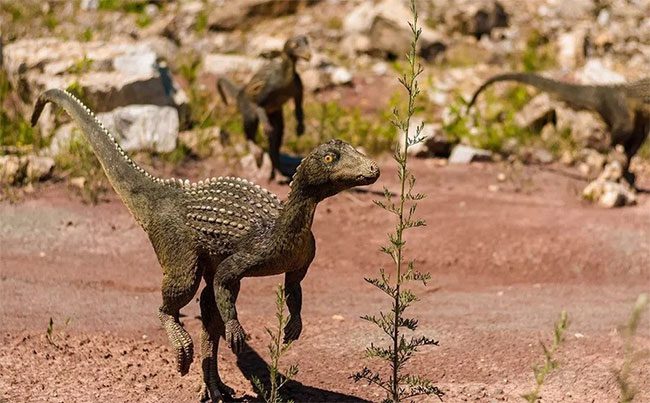A recent study has shared the latest evidence regarding the causes that led to the extinction of dinosaurs.
Geologists Brenhin Keller and Alexander Cox from Dartmouth College (USA) have developed a new method to conclude that the extinction of dinosaurs was caused by toxic gases.
Most studies on this issue have started with the assumption that the mass extinction 66 million years ago was caused by an asteroid impact or a volcanic eruption.

The new study suggests that the extinction of dinosaurs was due to toxic gases.
Geologists Keller and Cox utilized computer models for their calculations. For input data, they examined sediment cores drilled from deep beneath the ocean.
These layers of earth, along with microorganisms known as foraminifera, provided clues about ocean acidity over time as well as the levels of carbon and sulfur dioxide in the environment.
These two gases are believed to have played a role in the extinction event that wiped out the dinosaurs and 75% of life on Earth.
However, scientists have debated whether these gases were released due to an asteroid impact or a series of volcanic eruptions.
Geologists Keller and Cox simulated various scenarios, using a Markov Chain Monte Carlo statistical model to calculate probabilities based on the obtained evidence.
They discovered that gases released from volcanic eruptions provide a complete explanation for the environmental changes that led to the demise of the dinosaurs.
In contrast, an asteroid impact that occurred nearly simultaneously, which left a large crater in the Gulf of Mexico, had little effect on the extinction event.
In their modeling efforts, geologists Keller and Cox utilized dozens of computer processors in parallel. When executed sequentially, their simulations took over a year to complete. However, due to the concurrent operation of the models, the data was collected in just a few days.


















































